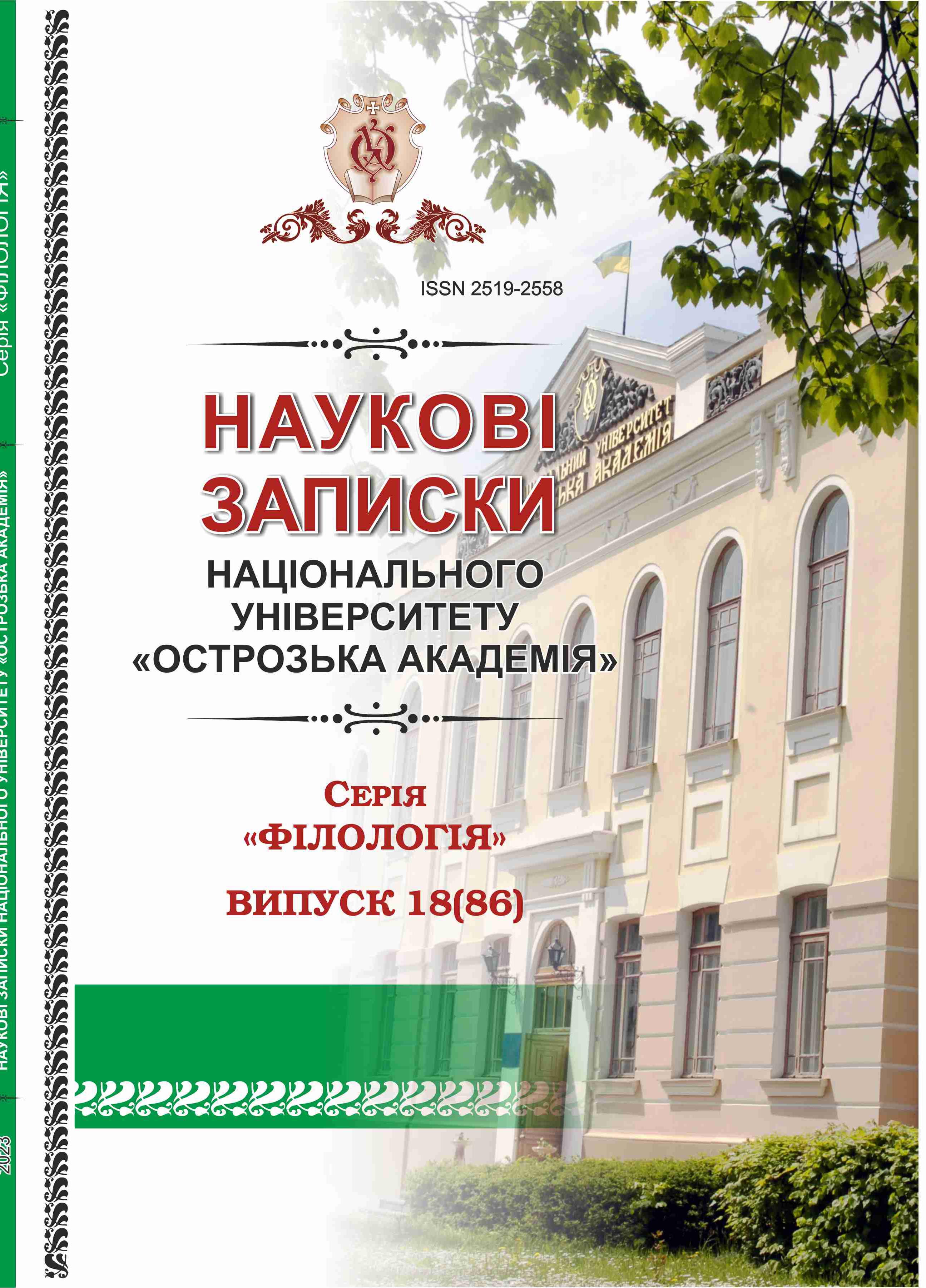THE EXTENDED STRUCTURAL COMPONENT OF PROFESSIONAL TRANSLATOR’S COMMUNICATIVE SPEECH MODEL: RESEARCH ON ASPECTS OF RHETORICAL COMPETENCE WITHIN THE CONTEXT OF LANGUAGE TRAINING OF FUTURE TRANSLATORS
Keywords:
rhetorical competence, non-rhetorical personality, visual rhetoric, verbal rhetoric, musical rhetoric, rhetorical triad, rhetorical activity, subject of rhetorical activity, rhetorical situation, rhetorical analysis, rhetorical figures, rhetorical devicesAbstract
The article examines and analyzes the communicative speech component of translator’s professional competence – its rhetorical aspect. The research outlines the need to increase the level of formation of the highest component of the professional communicative competence of philologists and translators by means of communicative and rhetorical training content. This scientific investigation specifies the concepts of rhetorical competence in translation and rhetorical culture as its component. The mastery of the special course “Fundamentals of Foreign Language Rhetoric” for the educational and professional program “Business Communication and Translation” is dominant in this direction, which involves familiarizing students with the theoretical experience of rhetoric and practical communicative and rhetorical skills for solving a number of professional tasks. The purpose of the course for future translators is to master rhetorical information that encourages professional-oriented communication with the development of a set of exercises for entering a rhetorical situation (visual rhetoric), the method of rhetorical analysis of a text, the method of improvisational tasks with the aim of involving students in spontaneous and prepared public performances (verbal rhetoric). As a result, the scope of the translators’ rhetorical competence is expanded: speech as a rhetorical activity is improved, public speaking skills are developed, communication barriers are overcome, self-presentation skills are acquired, logical, psychological, moral-aesthetic and ethical competences are developed, and one’s own rhetorical style is formed. The study analyzes the views of domestic and international scientists on the components of rhetorical competence and the direct connection of rhetorical knowledge with translation theories and translator’s activities. It dwells on the need to master the skill of argumentative and persuasive speech in various communicative situations, in simultaneous translation, in particular. It has been proven that having mastered linguistic and rhetorical competence translator builds optimal communication, becomes a skilled speaker and is able to develop his own rhetorical resources necessary for the effective implementation of professional translation activities. In addition, the study focuses on the need of the future translator to possess rhetorical culture – speech knowledge, skillful mastery of rhetorical tools necessary for translation of texts of various genres and styles. Attention is drawn to rhetorical analysis of texts and it is proved that the ability to analyze the text in this way is an important component of the rhetorical and communicative competence of future translators. The work represents a diagram of the structure of a speech, which will help students in preparing and delivering their own creativity. It is found out that training exercises and practicums contribute to the involvement of students in a rhetorical situation, the acquisition of experience in a rhetorical act and rhetorical speech. It was concluded that studying rhetoric and possessing rhetorical competence is one of the important tasks of training translation specialists. Prospects for further research on this issue have been identified.

